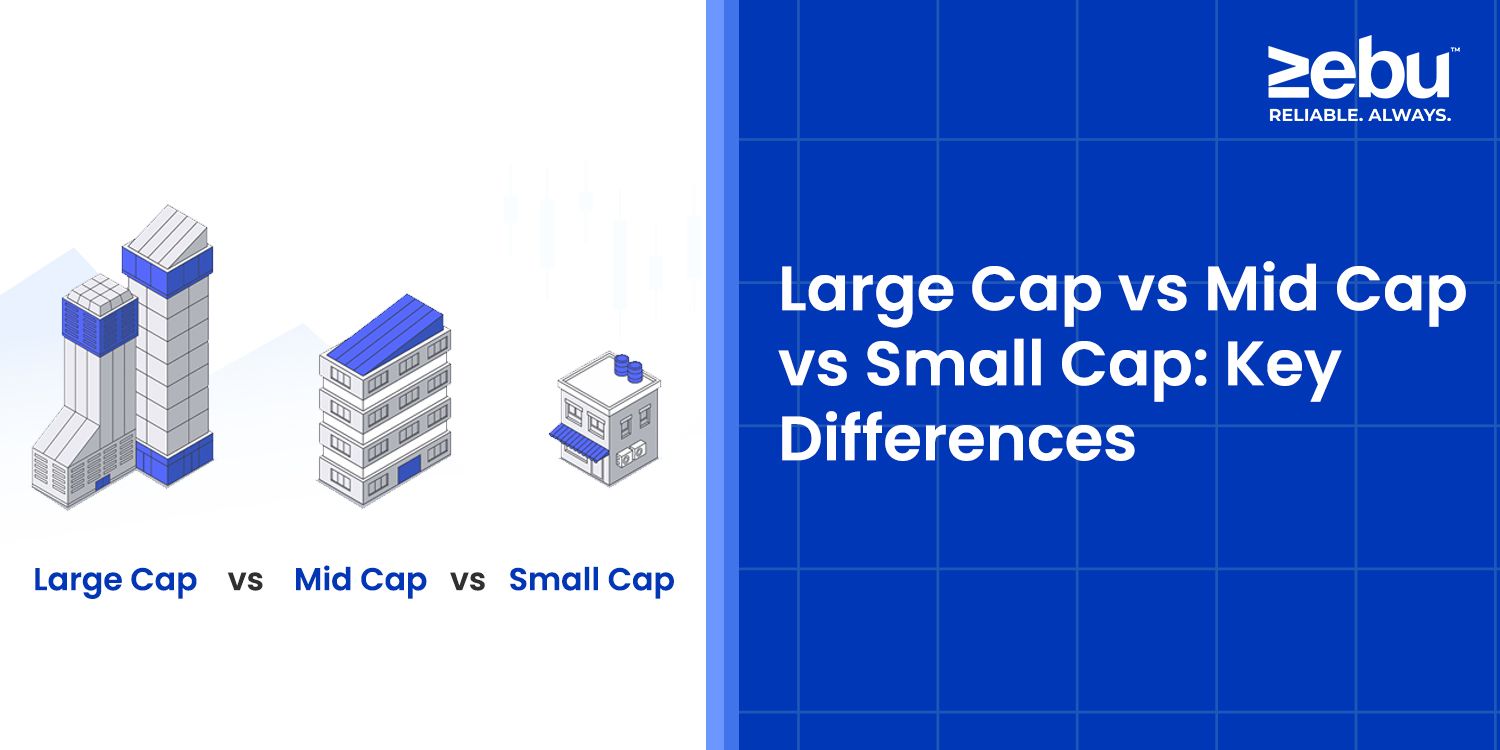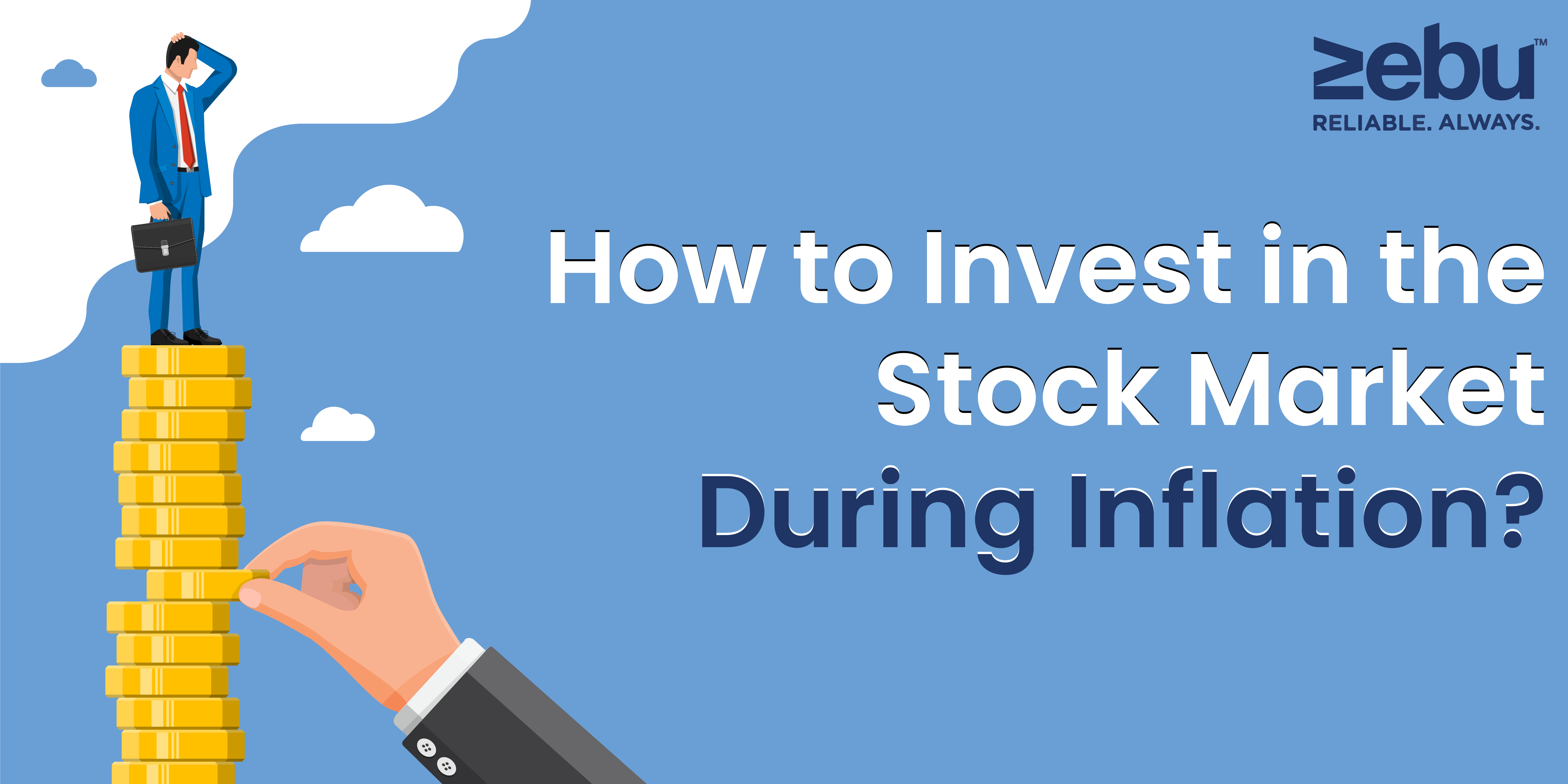
You don’t need to be an expert to invest in stocks. But knowing a few simple things makes the whole process a lot less confusing. One of those things is understanding what people mean when they talk about large cap, mid cap, and small cap stocks.
Sounds technical, right? It’s not.
It’s just about the size of the company — not the number of employees or buildings, but how much the company is worth on the stock market.
Let’s break this down in the plainest way possible.
What’s “Cap” Anyway?
So, “cap” is short for “market capitalization.” That’s a fancy term for a simple idea.
You take the price of one share. Multiply that by the number of shares the company has out there. That gives you the total market cap.
If a company has 10 crore shares and each one is ₹100, the market cap is ₹1,000 crore.
That’s it. No magic. Just basic math.
Where Do Large, Mid, and Small Come In?
Now that we know what market cap is, companies are sorted based on how big that number is.
In India, there’s a general rule based on rankings:
- Top 100 biggest companies = Large Cap
- Ranked 101 to 250 = Mid Cap
- Ranked 251 and below = Small Cap
It’s not about the business being good or bad. It’s just where they stand in the pecking order.
Let’s talk about what each one means for you, the investor.
Large Cap: The Big Guys
These are the companies most people have heard of. Names like Reliance, TCS, Infosys. They’ve been around for years, if not decades. They’re part of the system.
When you invest in large caps, you’re usually getting into stable, well-established businesses. They tend to handle economic ups and downs better. They’ve got experience. They’ve got cash. And they’re usually under a lot of watch — media, analysts, regulators.
Do they grow fast? Not really. That ship sailed years ago. But they can give you slow, steady returns. And sometimes they pay dividends too. You may not double your money in a year, but it’s not a rollercoaster either.
They’re the kind of stocks you don’t have to watch every day. You can hold them and go about your life.
Mid Cap: The Ones on Their Way Up
Mid caps are interesting. They’re not new, but they’re not giants either. Think of them like fast-growing companies that have proven something — but still have room to run.
These are businesses that might dominate in a specific region or niche. Maybe they’re expanding. Maybe they’re investing in new tech. They’re not done growing, but they’ve survived the early startup chaos.
With mid caps, you get a mix. More growth potential than large caps. But more risk too. They might spike in good times and fall in a market dip. They’ve got the energy of small caps with a bit more structure.
For investors who want something between steady and spicy, mid caps make sense. But you still have to pay attention. One bad quarter can hurt.
Small Cap: The Wild Cards
Here’s where it gets interesting. Small cap stocks are the smaller, younger companies that most people don’t know about. They’re new to the game, often under the radar.
These can be game-changers. Or disasters. Or both — depending on when you get in and how long you stay.
The appeal? They move fast. They can go from ₹20 to ₹200 in a year if something clicks — new product, new market, investor buzz. But the risk is just as real. They can crash just as fast. Sometimes for no clear reason.
These stocks aren’t always easy to buy or sell. Volumes are lower. Prices swing more. You have to dig deeper, read reports, understand the business. And still, you’re betting on what might happen.
Small caps are not for the faint-hearted. But they can offer serious upside if you choose well and time it right.
So Which One Should You Pick?
That depends. There’s no perfect answer. It’s about what you want from your investments.
For those seeking stability, approaching retirement, or preferring not to monitor their portfolio frequently, large caps are a safe place to start.
Those comfortable with some risk and aiming for higher growth than the industry leaders may find mid caps offer that extra edge.
Younger investors with time on their side, who can handle market swings and are willing to do thorough research, may find small caps exciting—just be sure not to concentrate your entire investment in them.
Most people do a mix. Some large caps for the base, some mid caps for growth, and a small slice of small caps for that extra pop.
Can Companies Change Category?
Absolutely. A small cap that grows steadily can become a mid cap. A mid cap that performs well year after year might get into the large cap club.
This isn’t fixed. It shifts as companies succeed or struggle. So your portfolio might shift too.
That’s why some investors check in every six months or so and make changes. Nothing fancy. Just making sure the balance still matches their comfort level.
A Few Things to Keep in Mind
- Market mood matters.
In bull markets, mid and small caps often shine. In downturns, large caps usually hold better. - Liquidity can be an issue.
Small caps might not have enough buyers or sellers at the price you want. That can affect your ability to get in or out. - Noise vs. signal.
There’s a lot of chatter around small and mid caps. Not all of it is useful. Don’t follow hype blindly. - Track your blend.
You might start with a certain balance between large, mid, and small. But as prices change, that balance shifts. A quick portfolio check every now and then helps. - Don’t overreact.
Stocks move. Some days will be red. Others green. Look at the business behind the stock, not just the price today.
Wrapping It Up
Large cap, mid cap, small cap — they’re just different sizes of companies. And each one plays a different role in your investing story.
You don’t need to know everything. You just need to know enough to make decisions that feel right for you. What are you comfortable with? What are your goals? How much time do you have?
This isn’t about picking the perfect stock. It’s about understanding what kind of ride you’re getting on.
Some people want the expressway. Others don’t mind the bumpy road. The important part is knowing which vehicle you’re in — and where it’s taking you.
Disclaimer:
This blog is for informational use only. It does not offer investment advice or recommendations. Investing in the stock market carries risk. Always do your own research or consult a certified financial advisor before making decisions.
